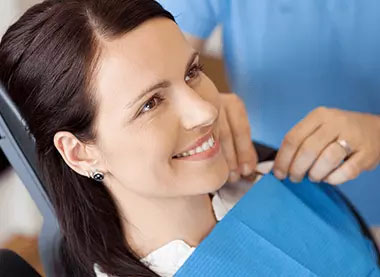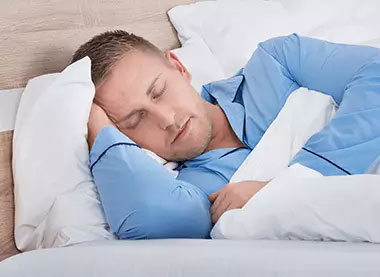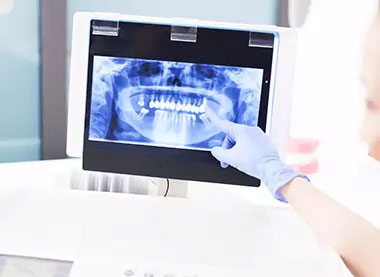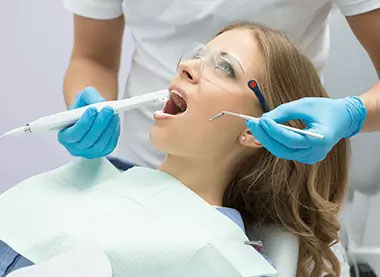What Is Sleep Apnea Trea? - Symptoms & Causes
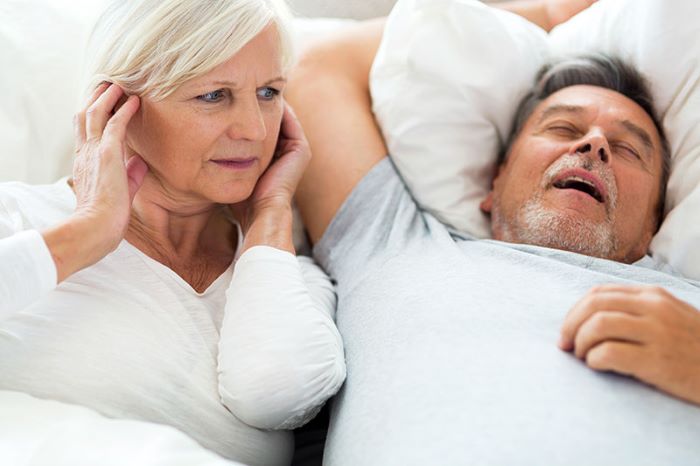
Sleep apnea is a common medical condition, but you might not realize you have it. It occurs when air is unable to get into your lungs as you sleep – apnea is Greek for "want of breath”. This can expose your body to multiple stresses, leaving you exhausted during the day and posing the risk of serious medical complications.
Sleep apnea is estimated to affect at least 10 percent of the population. In serious cases, the effects of sleep apnea can be similar to those of narcolepsy – causing an individual to fall asleep in the daytime with little or no warning.
The most common form of the problem is OSA – obstructive sleep apnea. There are two other type of sleep apnea: CSA – central sleep apnea – and a combination of CSA and OSA called mixed sleep apnea (MSA).
Obstructive Sleep Apnea
Bouts of OSA generally happen after loud snoring. They entail repeated pauses in breathing that may last a few seconds or far longer, and this can occur hundreds of times during a single night.
As we sleep, our body relaxes, and that includes throat muscles. This narrowing of the airway can cause snoring. If your throat closes entirely, you temporarily stop breathing. This can result in your brain and the rest of your body being deprived of oxygen – and you momentarily wake up spluttering and gasping. Obstructive sleep apnea occurs most commonly among people aged over 55 and is twice as prevalent in men.
Causes of OSA
OSA can be caused by physiological issues such as:
- Enlarged tonsils.
- A small airway.
- Large tongue.
- Small lower jaw.
Other causes of OSA include:
- Genetics.
- Obesity.
- Allergies.
- Nasal blockage.
If you have obstructive sleep apnea, the conditioned may be worsened by:
- Smoking.
- Sedatives.
- Alcohol.
Symptoms of OSA
You may not realize you have OSA until someone you live withdraws your attention to the problem.
Common symptoms of OSA that may be noticed by your partner while you sleep are:
- Loud snoring.
- Gasping for breath.
- Tossing and turning.
Symptoms you may become aware of yourself in the daytime include:
- Persistent fatigue.
- Waking up with a headache.
- Difficulty concentrating.
- Being short-tempered or feeling miserable.
Central Sleep Apnea
While OSA is a physical problem, central sleep apnea results from a communication problem when the brain temporarily fails to activate the muscles that control breathing. Symptoms of obstructive sleep apnea and central sleep apnea overlap, and this can make it difficult to diagnose which type you have, or whether you’re suffering from mixed sleep apnea, also known as complex sleep apnea syndrome.
With central sleep apnea, you may have difficulty getting to sleep or staying asleep, and/or wake up short of breath.
Factors that may increase the risk of CSA include:
- Aging.
- Heart problems.
- Some pain-relief drugs.
- Having had a stroke.
Complications from Sleep Disruption
The lack of quality sleep resulting from sleep apnea can cause emotional and physical problems – sleep is as vital as food and water to keep our mind and body in good condition. During normal sleep, your body maintains your physical health and ensures optimum brain function, but sleep deficiency can impair your ability to heal yourself and hinder cognitive functionality.
Your body’s immune system relies on sleep to operate effectively in fighting infections. Persistent lack of sleep can also put you at greater risk of:
- Obesity.
- Stroke.
- Kidney problems.
- Liver issues.
- High blood pressure.
- Heart disease.
- Diabetes.
Research has found that people deprived of sleep through sleep apnea may be up to 12 times more likely to be involved in a traffic collision. Health experts at Harvard Medical School say quality sleep helps to promote emotional and mental resilience, which can avoid problems like anxiety and depression.
How is Sleep Apnea Treated?
In many cases, sleep apnea requires treatment for life. The most common treatment for moderate to severe sleep apnea is a breathing mask attached to an airway pressure machine. These continuous positive airway pressure machines (CPAPs) keep your airway open while you’re asleep by providing a constant supply of compressed air.
However, the National Sleep Foundation says most people who use a CPAP device get side effects such as a runny nose or blocked nose. Others find the experience claustrophobic. Oral appliances are also used in cases of mild to moderate sleep apnea. They’re worn like a mouthguard to keep the airway open by positioning the lower jaw forward as you sleep.
According to the American Sleep Apnea Association (ASAA), these appliances are an effective first line of treatment. Oral appliance therapy (OAT) can also benefit patients with severe sleep apnea who cannot tolerate continuous positive airway pressure machines.
Advantages of oral appliances for sleep apnea include:
- Greater comfort.
- Quieter.
- Easy to use.
- Convenient for travel.
One type of oral appliance for sleep apnea is a mandibular advancement device (MAD), which fits over your teeth like a gum shield to hold your tongue and lower jaw forward. Surgery for sleep apnea is generally a last resort when the condition is severely affecting the patient’s quality of life and has failed to respond to other treatments. Surgical options to treat sleep apnea include removal of enlarged tonsils.
Many people with sleep apnea are advised to make lifestyle changes such as quitting smoking, losing excess weight, taking more exercise, and cutting back on alcohol consumption. Some patients find that putting essential oils and a humidifier in the bedroom can help to ease sleep apnea symptoms.
How Do I Get an Oral Sleep Appliance?
You can get over-the-counter oral devices for sleep apnea, but sleep experts caution against this approach. The American Academy of Sleep Medicine (AASM) says ill-fitting oral appliances can make sleep apnea worse by moving your teeth and causing jaw issues.
If your primary care physician suspects you have sleep apnea, they can organize a sleep study. If the condition is confirmed, a custom-made oral appliance can then be fitted by a dentist specializing in sleep apnea issues.
If you suffer from snoring or sleep apnea, we encourage you to contact Gentle Dental Arts today at 801-788-4922 or schedule an appointment online. Dr. Alexander Larsen and Dr. Parker Brown and their team are ready to care for you!
Resources
https://www.health.harvard.edu/newsletter_article/sleep-and-mental-health
https://www.sleepapnea.org/treat/sleep-apnea-treatment-options/


